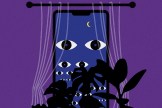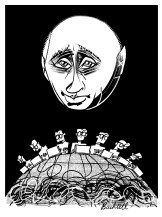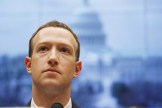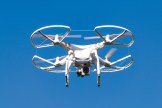More from the Review
Subscribe to our Newsletter
Best of The New York Review, plus books, events, and other items of interest
Advertisement
More from the Review
Subscribe to our Newsletter
Best of The New York Review, plus books, events, and other items of interest

The Bull’s-Eye on Your Thoughts
Today digital privacy exists only at the discretion of the companies that mediate our online engagement. But what happens when those companies, an employer, school administrators, or the government have access to our neural data?
The Battle for Your Brain: Defending the Right to Think Freely in the Age of Neurotechnology
by Nita A. Farahany
Reading Our Minds: The Rise of Big Data Psychiatry
by Daniel Barron
November 2, 2023 issue

Private Eyes
The surveillance economy has all but eliminated Americans’ ability to be “let alone.”
The Fight for Privacy: Protecting Dignity, Identity, and Love in the Digital Age
by Danielle Keats Citron
Seek and Hide: The Tangled History of the Right to Privacy
by Amy Gajda
March 9, 2023 issue

The Specter of Our Virtual Future
The metaverse opens up a new and seemingly infinite opportunity to extract data and sell ads.
The Metaverse: And How It Will Revolutionize Everything
by Matthew Ball
October 20, 2022 issue

The Human Costs of AI
Artificial intelligence does not come to us as a deus ex machina but, rather, through a number of dehumanizing extractive practices, of which most of us are unaware.
Atlas of AI: Power, Politics, and the Planetary Costs of Artificial Intelligence
by Kate Crawford
We, the Robots?: Regulating Artificial Intelligence and the Limits of the Law
by Simon Chesterman
Futureproof: 9 Rules for Humans in the Age of Automation
by Kevin Roose
The Myth of Artificial Intelligence: Why Computers Can’t Think the Way We Do
by Erik J. Larson
October 21, 2021 issue

Weaponizing the Web
Nicole Perlroth's investigation into the shadowy world of cyberweaponry predicts an unsettling future for global security.
This Is How They Tell Me the World Ends: The Cyberweapons Arms Race
by Nicole Perlroth
April 8, 2021 issue

The Drums of Cyberwar
All the critical infrastructure that undergirds much of our lives is at risk of being held hostage or decimated by hackers
Sandworm: A New Era of Cyberwar and the Hunt for the Kremlin’s Most Dangerous Hackers
by Andy Greenberg
December 19, 2019 issue

In Praise of Public Libraries
A public library stands in stark opposition to the materialism and individualism that otherwise define our culture.
Palaces for the People: How Social Infrastructure Can Help Fight Inequality, Polarization, and the Decline of Civic Life
by Eric Klinenberg
The Library Book
by Susan Orlean
Ex Libris
a film directed by Frederick Wiseman
April 18, 2019 issue

Apologize Later
The Cleaners
a PBS Independent Lens documentary film directed by Moritz Riesewieck and Hans Block
The Facebook Dilemma
a PBS Frontline documentary television series directed by James Jacoby
January 17, 2019 issue

How Republicans Became Anti-Choice
These days, the litmus test for Republican politicians and judges is opposition to abortion. This was not always the case.
Reversing Roe
a documentary film directed and produced by Ricki Stern and Annie Sundberg
November 8, 2018 issue

The Known Known
The future of privacy in the era of “surveillance capitalism”
The Known Citizen: A History of Privacy in Modern America
by Sarah E. Igo
Habeas Data: Privacy vs. the Rise of Surveillance Tech
by Cyrus Farivar
Beyond Abortion: Roe v. Wade and the Battle for Privacy
by Mary Ziegler
Privacy’s Blueprint: The Battle to Control the Design of New Technologies
by Woodrow Hartzog
September 27, 2018 issue

Bitcoin Mania
‘Blockchain Revolution: How the Technology Behind Bitcoin Is Changing Money, Business, and the World’ by Don Tapscott and Alex Tapscott
Blockchain Revolution: How the Technology Behind Bitcoin Is Changing Money, Business, and the World
by Don Tapscott and Alex Tapscott
Attack of the Fifty Foot Blockchain: Bitcoin, Blockchain, Ethereum and Smart Contracts
by David Gerard
January 18, 2018 issue
Subscribe and save 50%!
Read the latest issue as soon as it’s available, and browse our rich archives. You'll have immediate subscriber-only access to over 1,200 issues and 25,000 articles published since 1963.
Subscribe now
Subscribe and save 50%!
Get immediate access to the current issue and over 25,000 articles from the archives, plus the NYR App.
Already a subscriber? Sign in